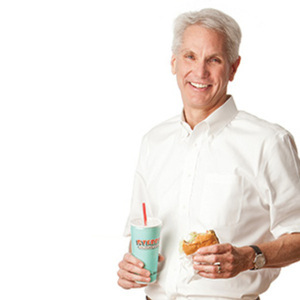In this episode of Building Texas Business, I learned valuable lessons from Patrick Terry, founder of the popular Austin-based restaurant chain P Terry's Burger Stand. Patrick explains how the company's success has been centered around its commitment to natural ingredients, competitive pricing, and exceptional customer and employee care. We explored the challenges of maintaining price discipline amidst rising costs and inflation, including during the COVID-19 pandemic. Patrick also shared insights from his origin story, hiring practices that bring on passionate individuals, and the importance of company culture. He also touched on the strategic considerations that underpin P Terry's expansion plans into new markets like Houston and the employee support programs in place.
SHOW HIGHLIGHTS
I discussed the inception of P Terry's Burger Stand in 2005 with founder Patrick Terry, focusing on their strategy of using high-quality, natural ingredients at competitive prices to differentiate from fast food giants like McDonald's and Starbucks.
Patrick emphasized the importance of customer feedback and employee well-being in ensuring operational efficiency and customer satisfaction, without relying heavily on marketing or advertising.
We explored the challenges of maintaining pricing discipline amidst inflation and supply chain disruptions, particularly during the COVID-19 pandemic, and how P Terry's managed to outperform competitors with consistent pricing strategies.
Patrick shared the origin story of P Terry's, highlighting their commitment to quality food and a strategic hiring process that prioritizes employees' passion for the restaurant business.
The unique approach to food preparation at P Terry's through their own commissary was discussed, showcasing how it helps maintain quality and cost control, along with their plans for expansion into Houston.
We delved into the significance of company culture and employee care, including P Terry's innovative non-interest loan program for staff in financial need, as a means to foster loyalty and engagement.
Patrick recounted the emotional journey of running the business, his brief hiatus from leadership in 2019, and the decision to reengage with renewed vigor, underscoring the importance of leadership in maintaining company culture.
The strategic expansion from Austin to San Antonio and the considerations involved, such as logistical feasibility and location selection based on cost and accessibility, were discussed.
We highlighted the balance between choosing affordable locations and ensuring they are accessible to customers, using demographic trends and growth areas to inform business decisions.
Patrick shared personal anecdotes, including his early entrepreneurial ventures and the cultural philosophy at P Terry's, emphasizing the importance of setting high standards and leading by example.
LINKS
GUESTS
